“Poison is in everything, and no thing is without poison. The dosage makes it either a poison or a remedy.” —Paracelsus
Poison comes in many forms. People didn’t always have to physically go to war to kill their enemies, and sometimes people take their life into their own hands through the use of poisons. There is no question poison has shaped the world’s history, so let’s look a bunch of ways it altered our trajectory.
42. Sentenced Suicide
Plato tells the story that Socrates was forced to kill himself by drinking poisonous hemlock after being sentenced to death for impiety and corruption of the youth. Instead of fleeing, he accepted his sentence and therefore his death.

41. Persian King-Making I
Artaxerxes III and most of his family were poisoned by the powerful Persian Vizier (Chief Minister) Bagoas in an attempt to have Artaxerxes youngest son, Arses, rise to the throne so Bagoas could manipulate him as a puppet.

40. Persian King-Making II
This subsequently led to Bagoas ruling over Persia for two years before Arses grew disgruntled and decided to kill off Bagoas. Bad plan. Bagoas was just much better at this whole "poison and puppet" thing: He poisoned Arses and raised Arses’ cousin Darius III to the throne.

39. Persian King-Making III
Well...Darius III wasn’t the biggest fan of Bagoas either, and when Bagoas tried to have him poisoned, he was ready for it and instead forced Bagoas to drink the poison himself. Things wouldn’t last too long for Darius III though, as Alexander the Great came shortly afterward to conquer his empire.
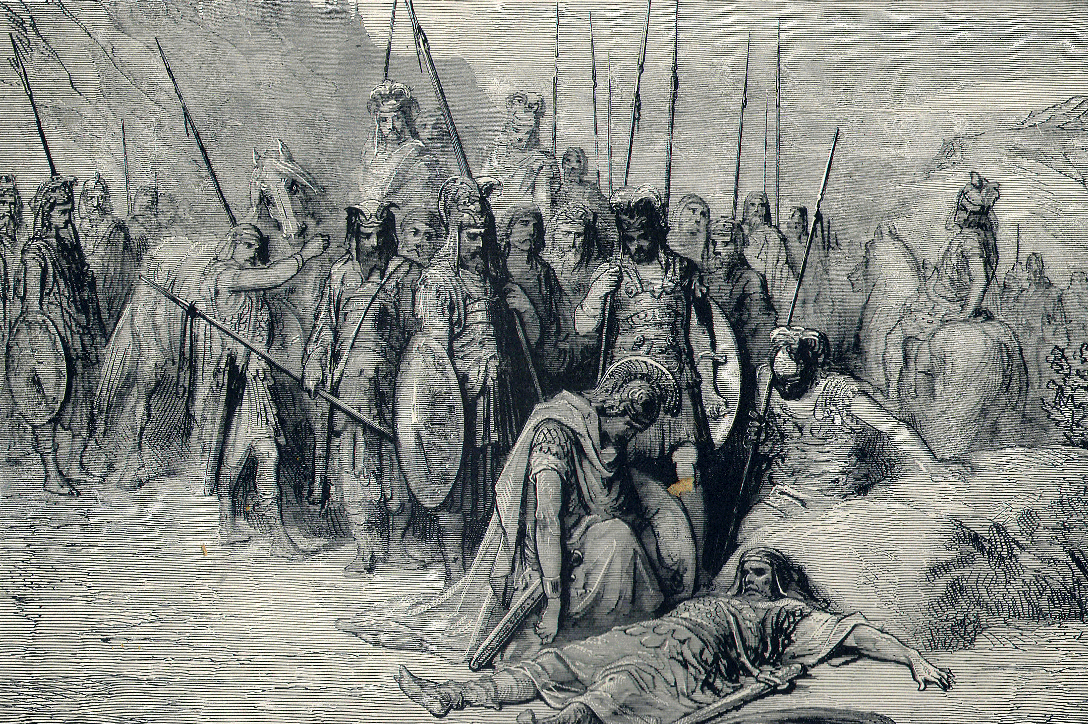
38. Rhetorical Death
One of the great Greek orators, much of what we know of Athenian political thought and rhetoric is through Demosthenes. He was responsible for leading an uprising against the new colonial emperor, Alexander the Great, and he became a wanted man. Instead of being captured by Alexander's successor, who was tracking him down, he drank the poisonous contents of a reed pen.
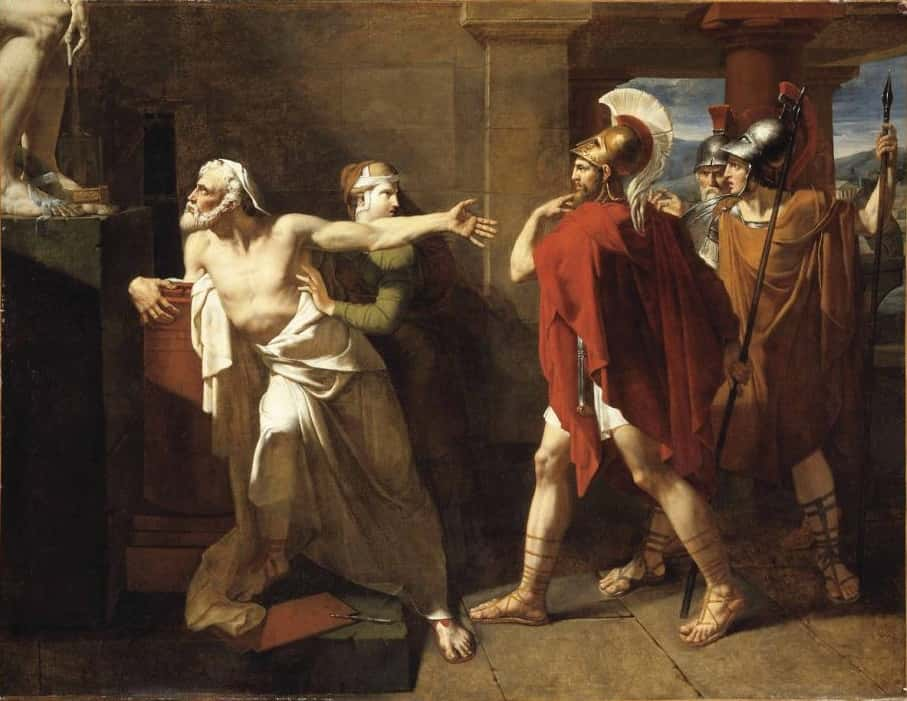
37. Sharing Isn't Always Caring
By picking up the pieces of the Indian subcontinent after being invaded by Alexander the Great, Chandragupta Maurya was able to unify and build one of the largest empires in Indian history. Through the years, his chief minister would mix small doses of poison in his food to build his immunity, which Chandragupta was ignorant to. One evening he shared his dinner with his nine-month pregnant wife. She collapsed, and he cut the baby from her womb to save the child. Chandragupta would go on to renounce all his wealth and achievements, and perform Sallekhana, the religious rite of fasting to death.

36. Egyptian Royalty
Cleopatra's famous suicide was a plan devised to not face Octavian after her lover Mark Antony's suicide. Though she was captured, she deceived her guards by sneaking an asp snake into her mausoleum and letting it bite her with its lethal venom.

35. Poison Ring
Considered one of the greatest military minds in history, Hannibal was able to hold off the Roman Republic even as it was claiming supremacy over much of the kingdoms in the Mediterranean. He was even able to occupy much of Italy after marching an army of war elephants over the Pyrenees and Italian Alps. According to one source, he also carried around a ring full of poison, which he finally ingested while on the run from the enemy.

34. Emperor Claudius
Roman Emperor Claudius was the first Roman Emperor to be born outside of Italy and held one of the longest reigns in Roman histoy at 13 years. The consensus was that he was poisoned by his last wife, Agrippina the Younger, who he had been openly combative with during the last months of his life, so she could ensure the nomination of her son Nero—yeah, that Nero—as emperor.
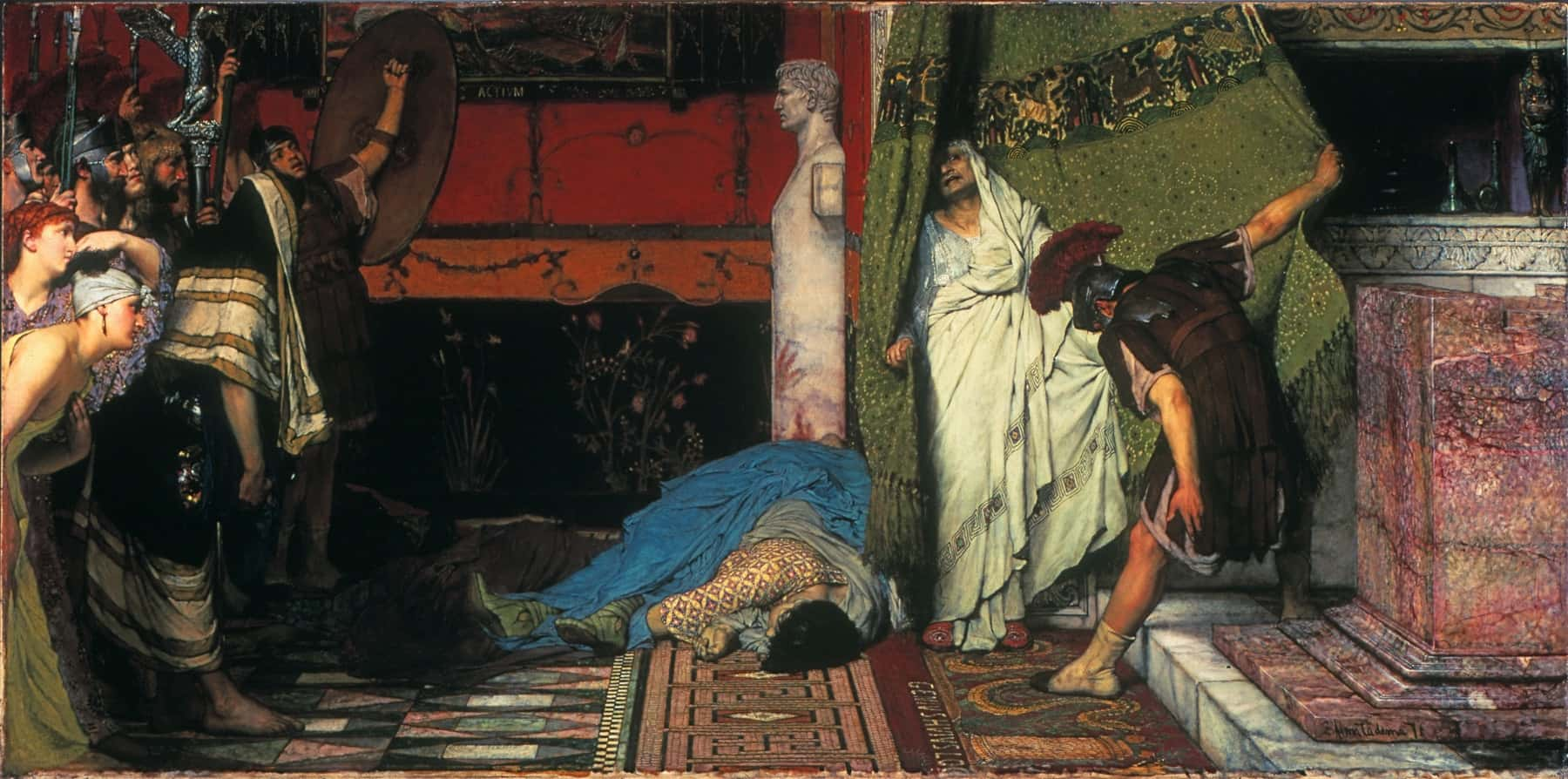
33. Mommas Boy
During the first years of Nero’s reign, his mother Agrippina guided his rule, but after a conflict broke out, she turned on him and began to openly support Nero’s brother, Britannicus, to ascend to the throne. Nero consequently had Britannicus secretly poisoned on the eve of his fourteenth birthday.

32. King of Judea
Antipater the Idumaean was a highly skilled politician who was able to play the empires to the east and west of Judea, creating the Herodian dynasty and forging a way for his son Herod the Great to create an Aristocracy from practically nothing. He is responsible for much of the steep changes of the Jewish nation prior to the birth of Jesus but wasn’t loved by everyone. He would be poisoned by an aristocrat, who after multiple attempts at assassination finally succeeded by bribing one of Antipater’s cup-bearers.

31. Immunity
If you’re going to carry around poison your whole life to make sure you never fall into your enemy’s hands, you might not want to spend your life building an immunity to that poison. Mithridates VI was a Persian king, who, much like Hannibal, was on the run when he decided to kill himself, along with his daughters, with the poison he carried around in his dagger. Problem was, he had built up such an immunity that he was forced to ask his guard to do the deed for him. Mithridatism is now a word that is officially defined as "the practice of protecting oneself against poison by self-administering non-lethal amounts."
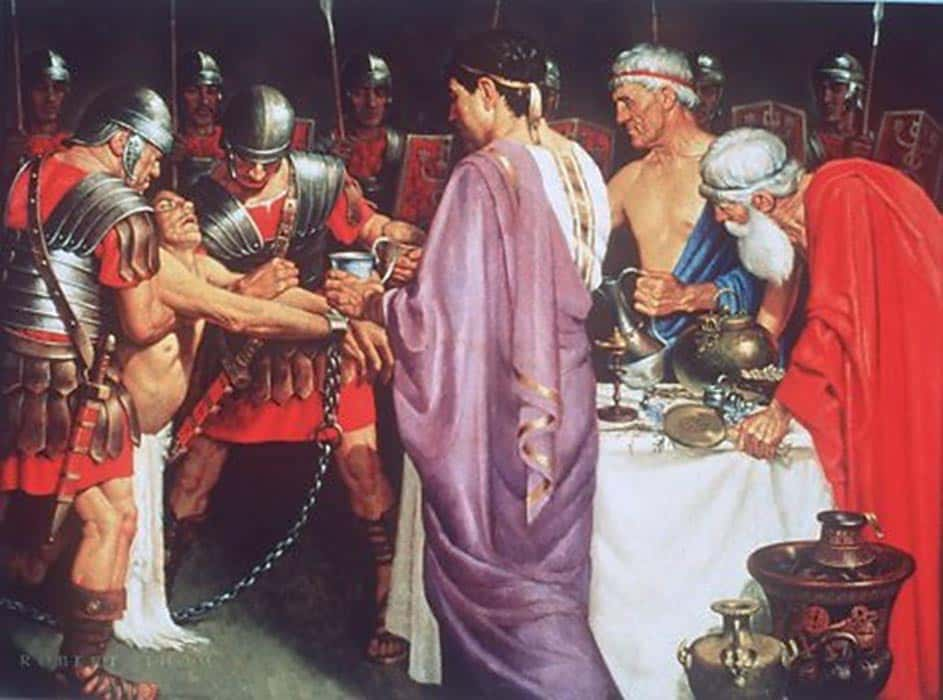
30. Nero to Zero
The heir to the throne of Rome, Drusus Julius Caesar (born Nero—no, not that Nero. Also not that Julius Caesar), was well liked and respected in the republic before his sudden death. The mystery surrounding his death led to the claims that it was the result of a feud with the powerful Praetorian prefect Sejanus, who seduced his wife Livilla and convinced her to poison him.

29. Dynastic Collapse
Emperor Hui of Jin was a developmentally disabled Emperor of the Jin Dynasty from Ancient China. His bread was poisoned and he was assassinated, likely by his regent, though it is not clear exactly why. His death meant the end of the Jin Dynasty system, which had been crumbling under his rule.

28. The First
Known as the first young male to accept Islam, Ali was the son-in-law of the prophet Muhammad, and was the first Imam of Shia Islam. He would die after being attacked with a poisoned-coated sword while prostrated in the Fajr prayer. His death led to the split of the Arabic community, known as Ummah, into Sunni and Shia, as they disagreed on the rightful successors of Muhammad.

27. Noble Anger
Umar II attempted to greatly reform his Umayyad Caliphate, which angered the nobility. Wanting away with Umar II, they bribed his servant to poison his food. On his deathbed, he learned of the plans and pardoned the culprit instead of ordering his punishment.
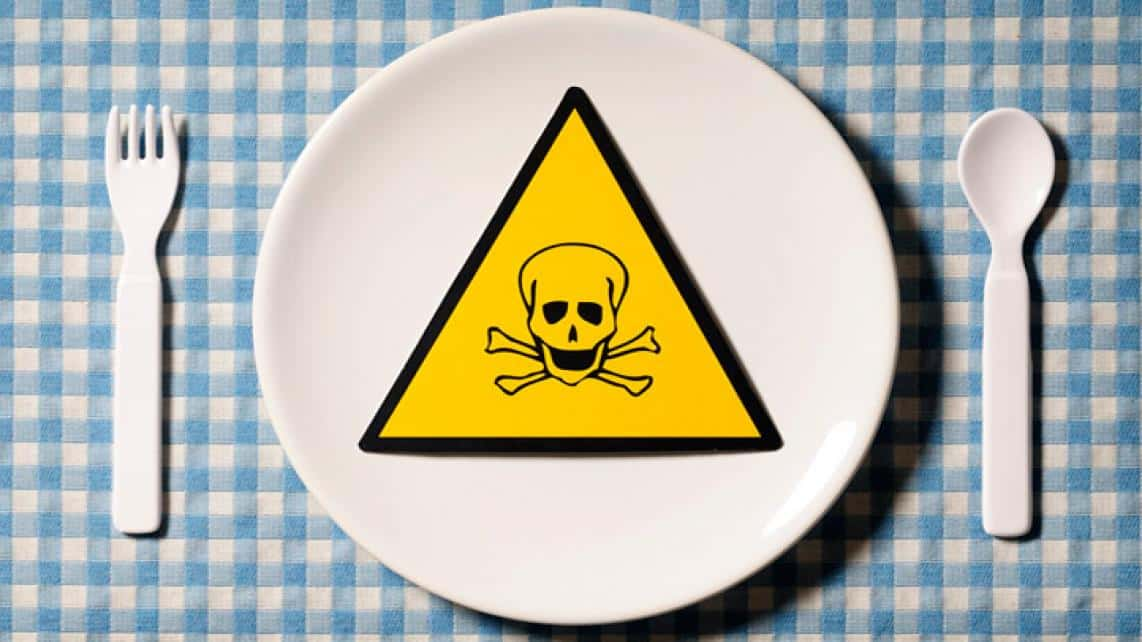
26. Cruel Imprisonment
Mūsá al-Kāẓim was the seventh Imam and is held as one of the foremost Sunni scholars. He was unjustly imprisoned multiple times throughout his life and the Shi’a maintain that during his final imprisonment he was poisoned. His place of burial became a place of pilgrimage, which grew into a town (Kadhimiya), and a renowned school of theology was founded there.

25. Lord of the Mountains
The fourth lord of the Armenian Cilicia, Constantine II had a brief rule of only a few months. It is held that he was imprisoned and poisoned after his father, Thoros I, was killed leading the way for the rule of Leo I, his uncle.

24. King of Jerusalem
Baldwin III survived a civil war with his mother, a Crusade, and an alliance with the Byzantine Empire—but he couldn’t survive the doctor's office in Antioch, as it was rumored he was poisoned by ingesting pills given to him from his Syrian Orthodox doctor.

23. Macbeth Was Real
He became King of Scotland in 1040 but during his ascent, Macbeth was a General who aided, with nightshade (Belladonna), the poisoning an entire army of Danes attempting to invade Scotland.

22. Kill The Queen
The daughter of William the Conqueror, the first Norman King of England, Constance of Normandy was said to be the most cunning of his children. Just before her father’s death, she married the Duke of Brittany, a key player in the political scene. This alliance would back her claim as Queen but she died suddenly and soon after in 1090; you know what that usually means.

21. Overindulgence
The fourth son of William the Conqueror, Henry I of England was able to consolidate his power after being shunted off by his elder brothers and eventually rose to the throne. A man of indulgence, he was known for his many mistresses and illegitimate children, and for being a harsh and manipulative, though effective, ruler. His favorite food was lamprey, but as he aged his doctor forbid him from eating the fish. On a hunting trip one autumn in France he, of course, overindulged in his favorite dish and fell to his death from good old natural food poisoning.

20. Agitators Don’t Survive
As Captain-General of the Kingdom of Albania, Louis of Durazzo spent his time stirring up revolts throughout the Kingdom of Naples. After finally being crushed in 1360, the agitator of empires was imprisoned and murdered by poison.

19. Renaissance Man
The Renaissance era was an incredible time for humanity, but it was still dangerous. Famous for his Oration on the Dignity of Man, which is known as the “Manifesto of the Renaissance,” Giovanni Pico della Mirandola died under mysterious circumstances. A 2008 excavation of his body confirmed that he had been poisoned with arsenic although it is not known for what reasons.
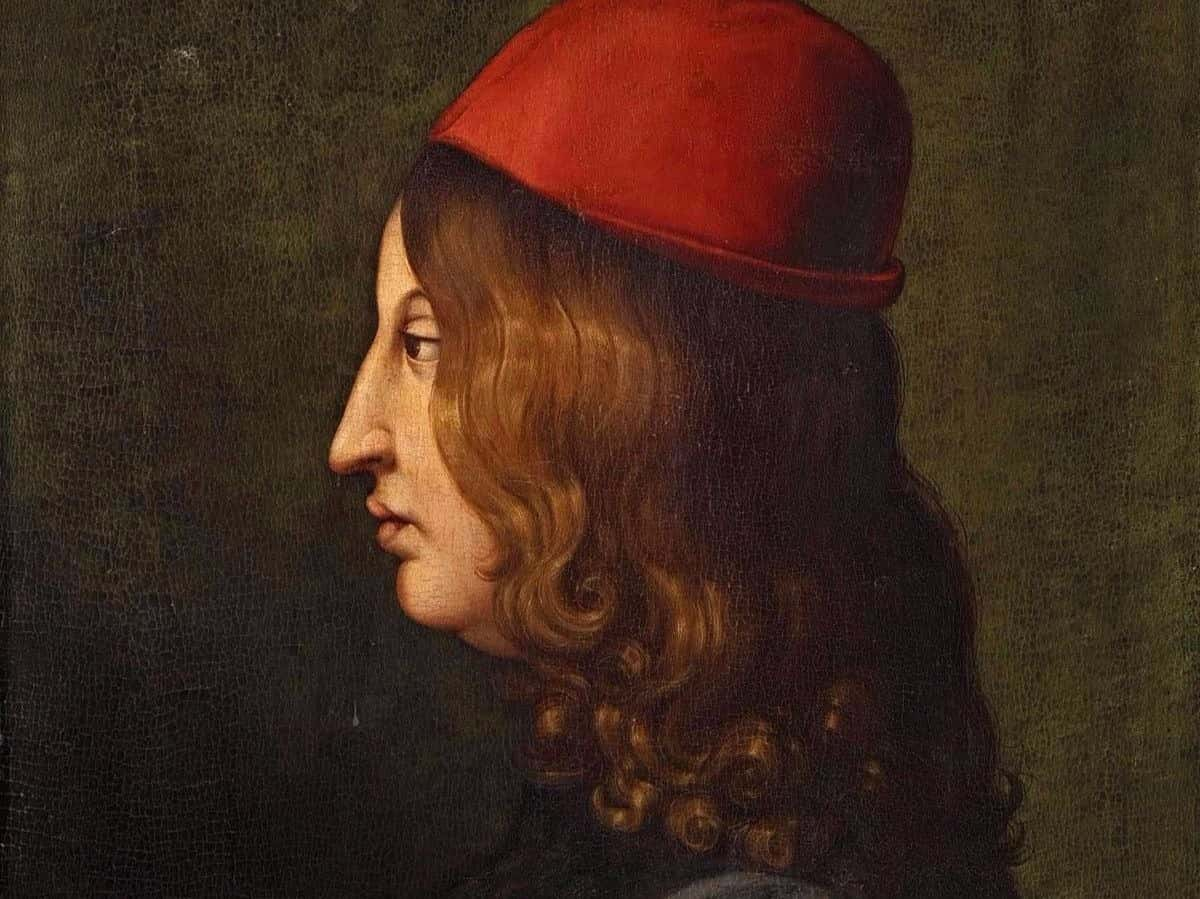
18. Messing With Natives
Famous for naming the state of Florida, Juan Ponce de León would meet his fate during his colonization attempts of the land. While attempting to form a colony in southwest Florida, his settlement engaged in a tussle with natives, and he was shot with an arrow poisoned with manchineel tree sap, which would kill him soon thereafter.

17. Severed Relations
Before Japan isolated itself from the world, it maintained a good relationship with the Ayutthaya Kingdom of ancient Thailand, Siam. The adventurer Yamada Nagamasa played a large role in the success of the relationship before he was poisoned by the new usurper King of Siam, Prasat Thong. After the assassination, Prasat destroyed the Japanese settlement in Siam, thus ruining relations with the Japanese, who would subsequently increase their isolation.

16. Deadly Mushrooms
King Charles VI, though decreed as Holy Roman Emperor, is perhaps best known for his inability to produce any male heirs. He reigned over his empire for 29 years before a fatal hunting trip in the wet October of 1740, when he ate the toxic “death cap” mushrooms of a Hungarian forest.
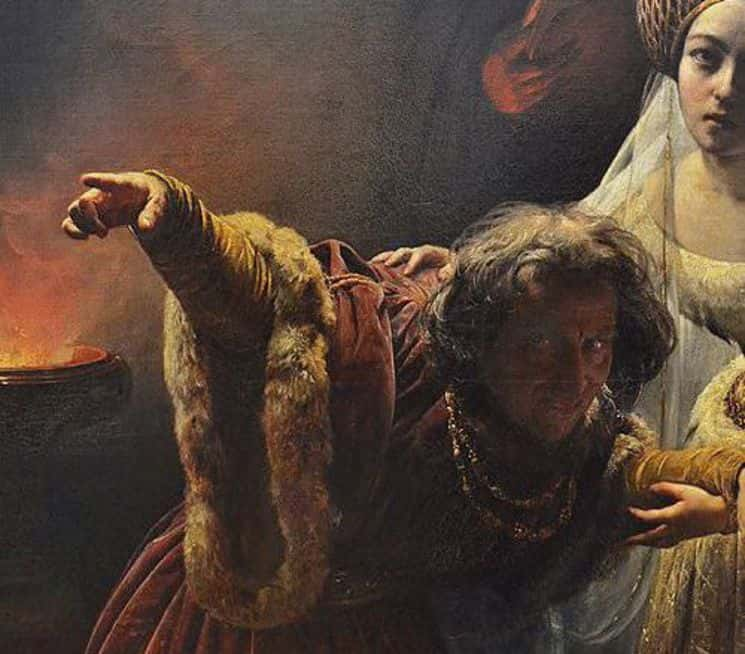
15. Deadly Mushrooms: Part II
A contemporary of Mozart, whom he learned much from, Johann Schobert’s potential was never realized due to a bit of arrogance. When he attempted to have the mushrooms he picked prepared, he was told by several people that the mushrooms were poisonous. Ignoring their advice to dispose of them, he instead prepared them at home with his family, killing himself along with his wife, one of his children, a maidservant, and four friends. Thanks, Dad.
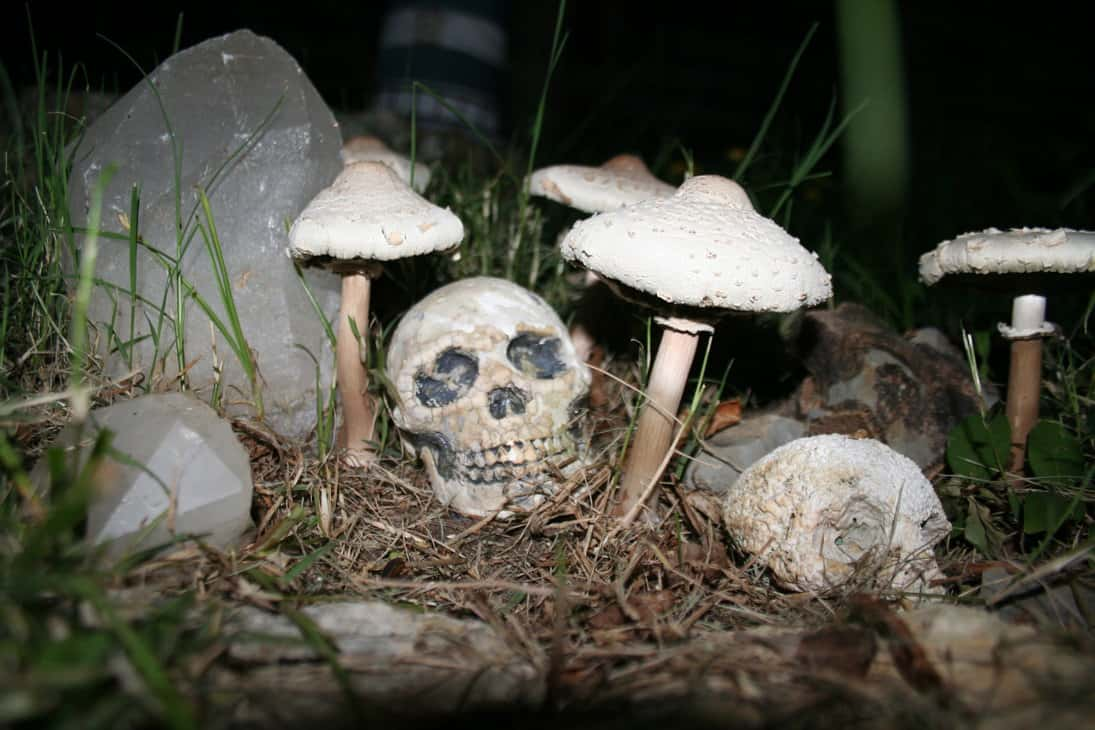
14. We Mean It
One of the most important financial figures during the rise of Vladimir Putin in Russia, Roman Igorevich Tsepov was known as a “security oligarch.” He was poisoned by an unspecified radioactive material after having a cup of tea at a local FSB office. He suffered from the same symptoms as Alexander Litvinenko.

13. Purge of Terror
Head of the Soviet foreign intelligence service branch of the NKVD (Soviet secret police), Abram Slutsky was poisoned in his office during the Soviet Union’s campaign of political repression, the “Great Purge.” During this purge from 1936-38, no one was safe, and an estimated 600,000 people were murdered.
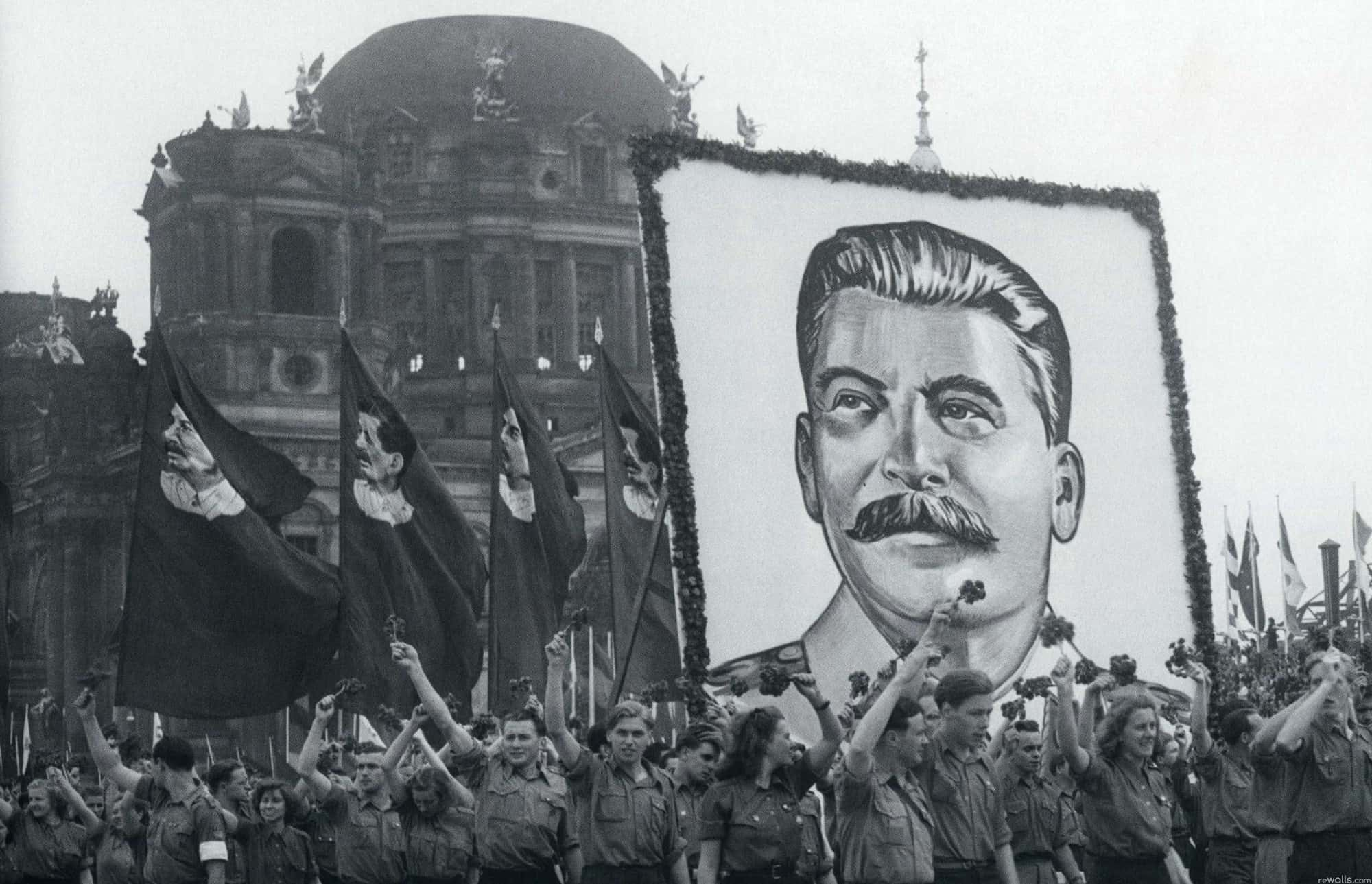
12. Nikolai Koltsov
The father of modern genetics, Nikolai Koltsov was perhaps Russia’s greatest biologist of the early 21st century, as he was responsible for the first ideas on the double helix of DNA. He would be labeled a bourgeois scientist by the Communist party and was poisoned by Soviet police in 1940.
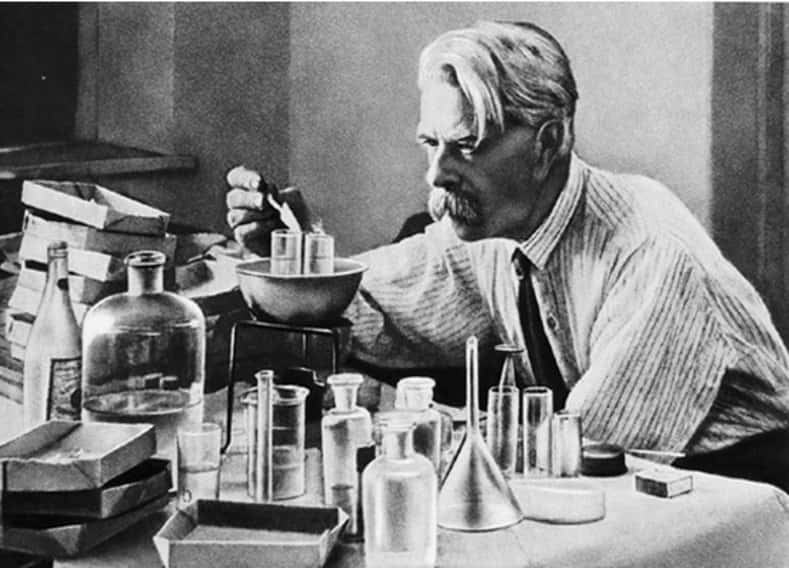
11. Joint Suicide
Adolph and Eva Hitler both committed suicide side-by-side in their Berlin bunker: Adolph by a gunshot wound through the temple, and Eva by biting into a cyanide capsule.
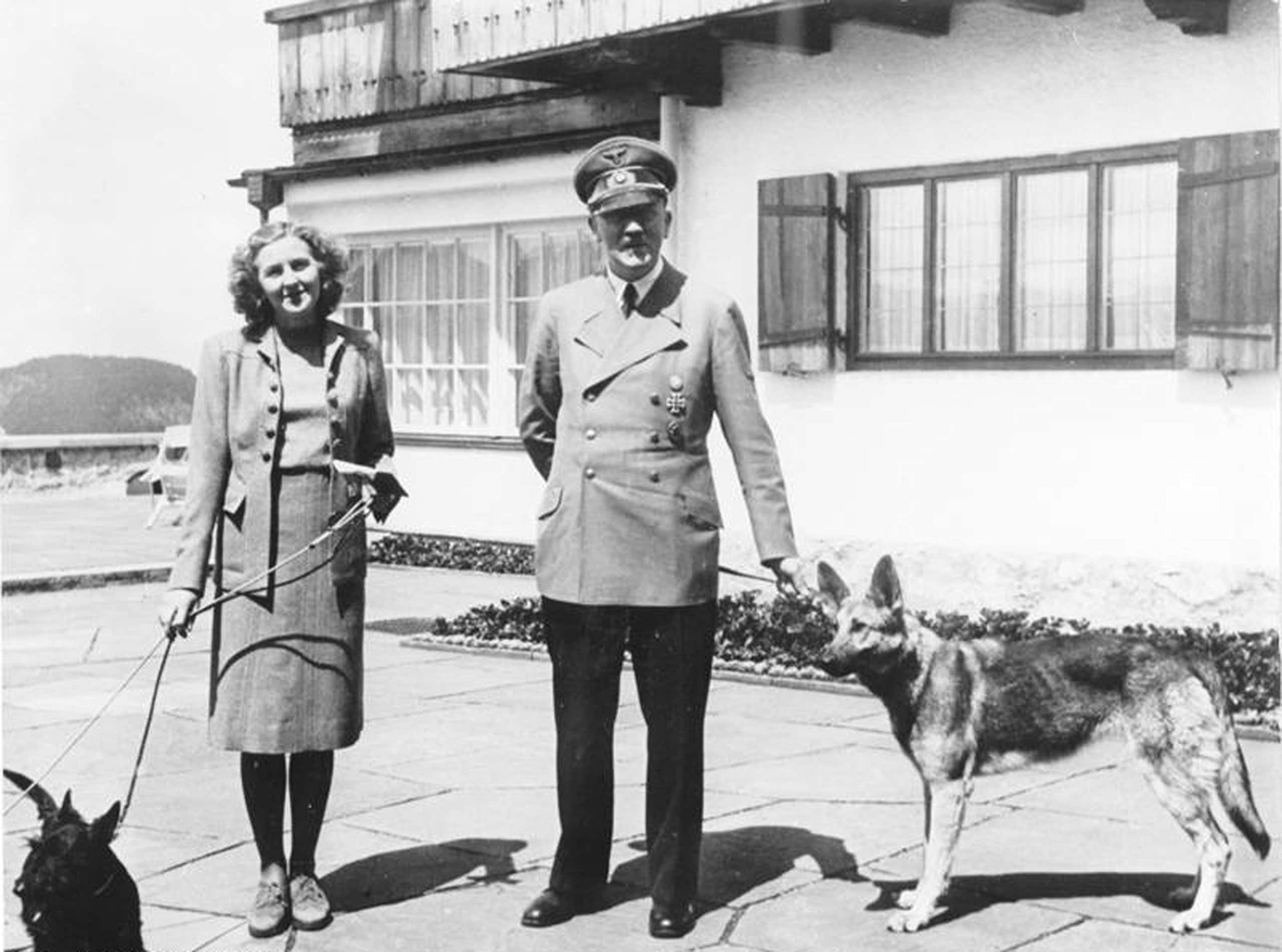
10. Medical Check Up
Heinrich Himmler was denounced by Hitler before being captured by the Allied forces. During a medical examination, Himmler bit into his cyanide tablet and collapsed in front the doctor, dying within 15 minutes.
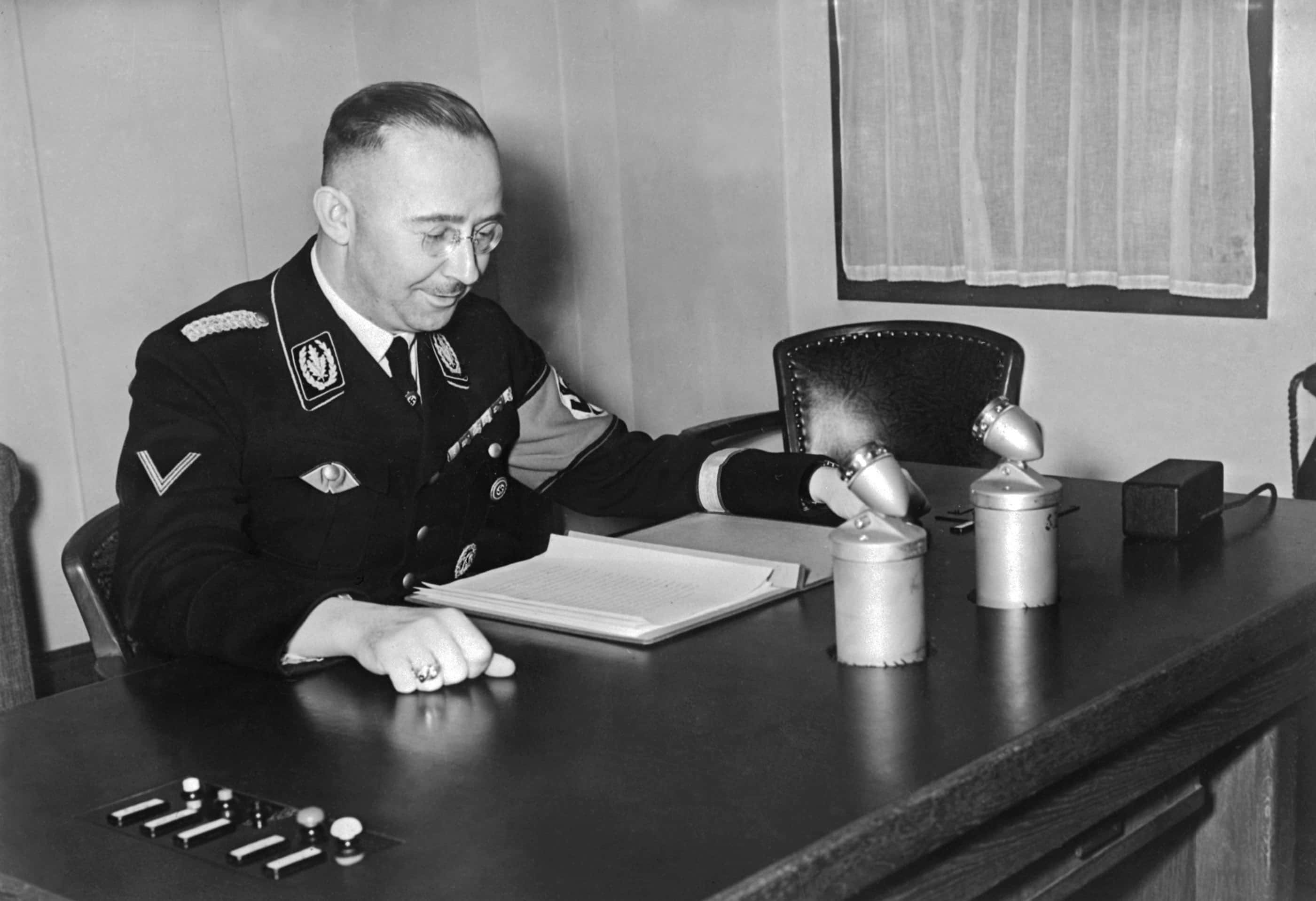
9. Before the Hanging
After his capture, Hermann Göring, the German Reichsmarschall, was sentenced to death by hanging. However, he committed suicide by cyanide capsule the night before the execution was to take place.
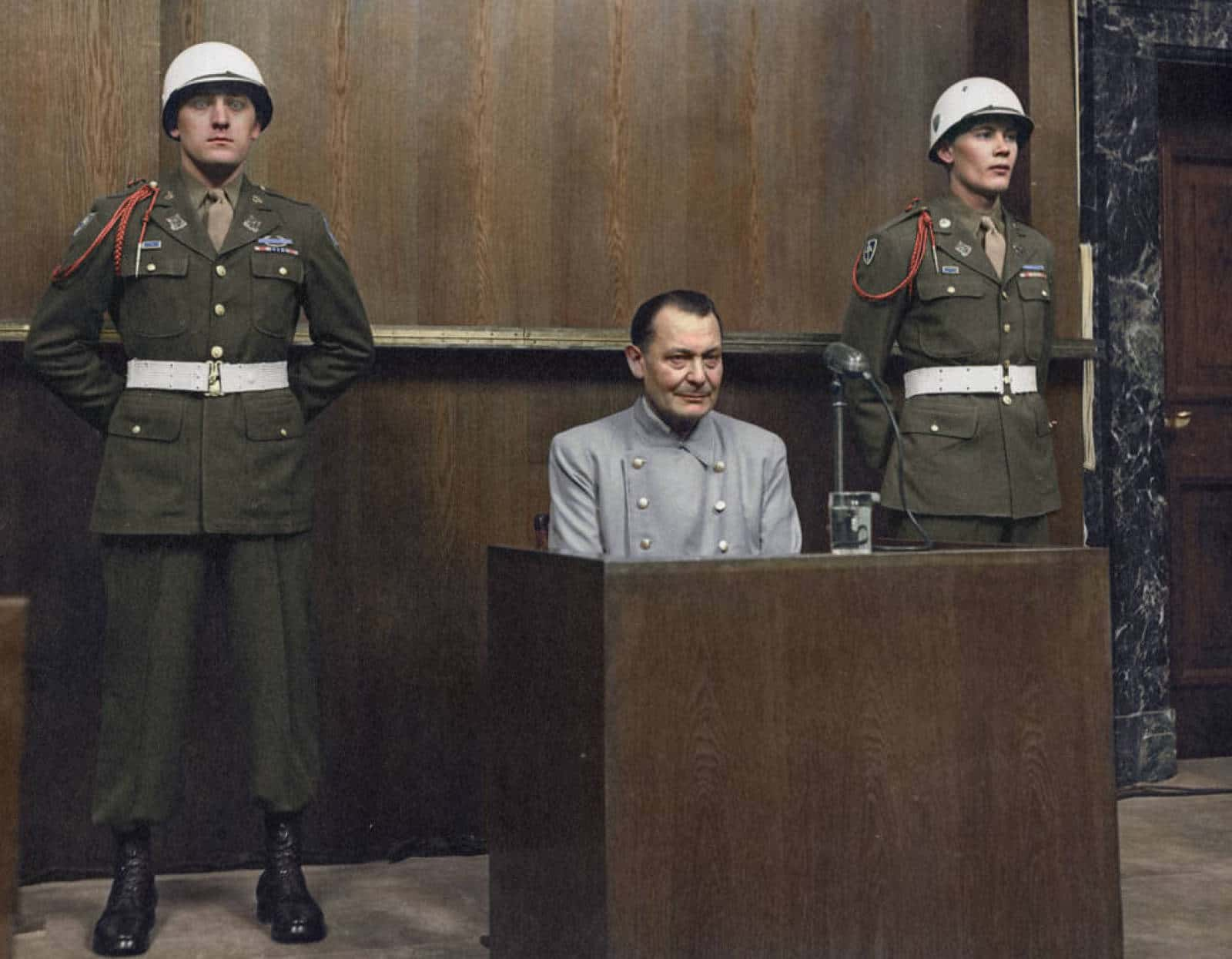
8. Goebbels Children
Before their capture by Allied forces, Magda and Joseph Goebbels injected their six children with poison before killing themselves. Magda talked about killing her children for weeks before the murder and rebuked offers to sneak the children out of Berlin. They hired an SS dentist to give them morphine to knock them out before crushing cyanide tablets into their mouths.

7. Madge Oberholtzer
Madge Oberholtzer was only 29 when she was held captive, raped, and tortured in a train car by the grand dragon of the Indiana Ku Klux Klan. She attempted suicide by poison, ingesting mercury chloride while being held captive. After her captors realized she had poisoned herself, they returned her to her home. Sadly, she would die upon her return home but was able to regain consciousness for enough time to sign a detailed statement to the police about the events. This led to the conviction of the grand dragon and the rapid decline of the organization in Indiana.

6. The Father of Modern Computers
One of the greatest minds to have ever lived, Alan Turing developed the idea of theoretical computer science and artificial intelligence while also working as a codebreaker during WWII. Experts claim Turing’s efforts shortened the war by as many as four years. Tragically, Turing was criminally prosecuted for his homosexuality, was sentenced to chemical castration, and committed suicide by poison at only 41 years old.

5. Stepan Bandera
Stepan Bandera was a Ukrainian nationalist who was both a cooperator with the Nazis and an irritant of the Nazis. He was poisoned with cyanide by KGB agents.

4. Ricin Assassination
Georgi Markov was an influential Bulgarian dissident writer who worked for the BBC and held open broadcast forums in which he would “smear mud on the people” of the inner Bulgarian political circles. He was shot with a ricin-filled pellet from an umbrella carried by a KGB associate of the Bulgarian secret police while he walking the streets of London in 1978.

3. Negligent Disaster
In 1984, a pesticide plant in Bhopal, India leaked 42 tonnes of toxic methyl isocyanate gas into the city, leading to between 3,787 and 16,000 deaths and over 550,000 injuries. The cause of the disaster was ruled by Indian courts as negligence.

2. Don’t Mess With Russia
Alexander Litvinenko was a former FSB (Russian secret services) officer turned dissident who attempted to expose the corruption in Russia and made accusations against the Russian secret services and Vladimir Putin for domestic terrorism. He died after contracting acute radiation syndrome from being poisoned with polonium-210. He is the first person known to have died at the hands of this chemical.
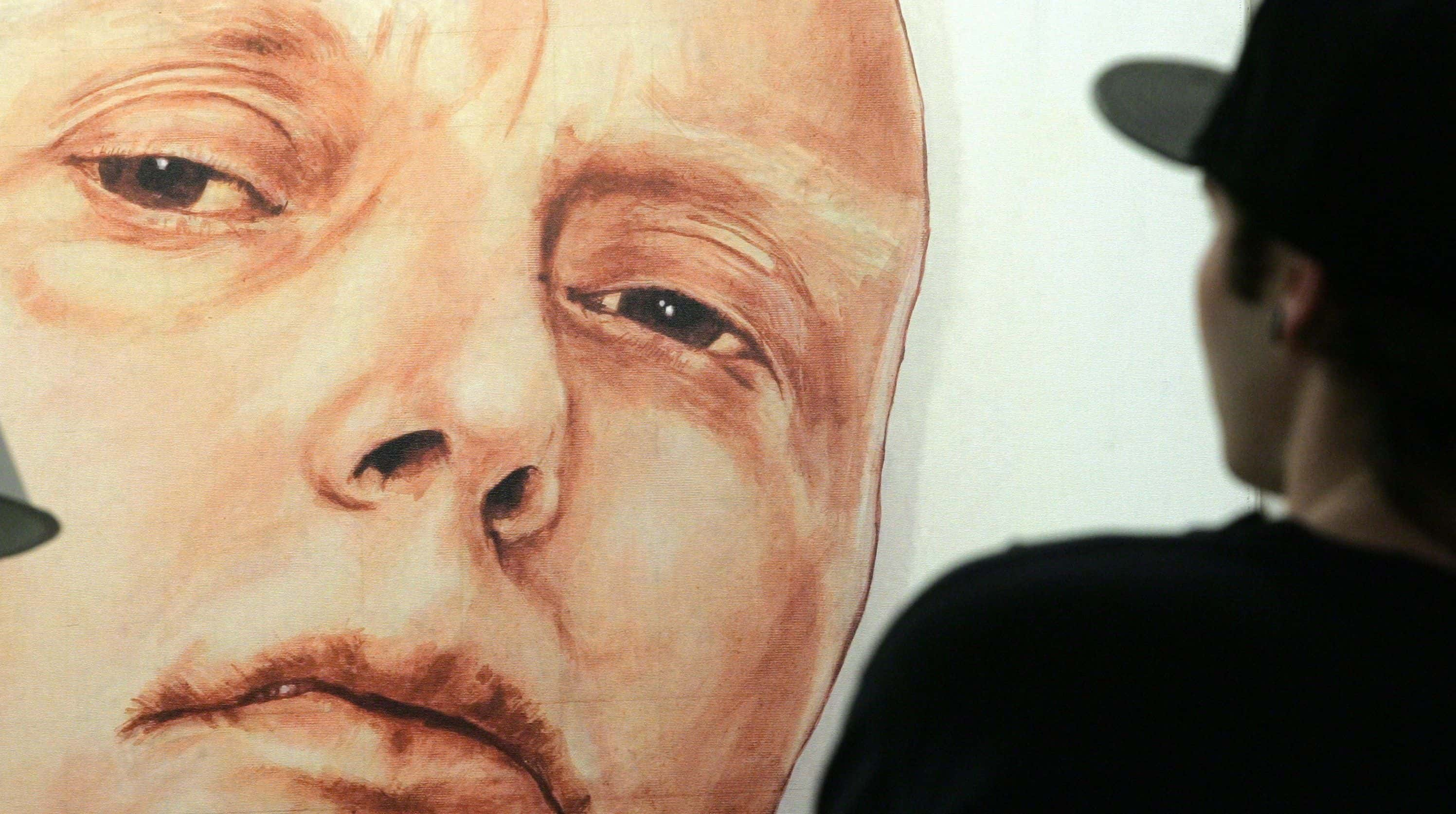
1. Rasputin
If you don’t know the story of Grigori Rasputin, then when you’re done reading through this wild list, go read up on this mystic escapee of death. A peasant who grew into the main influencer of Tsar Nicholas II and his royal family during the early 20th century, the attempts on his life are the stuff of legend.
Angered by Rasputin's influence on the ill-fated royal Romanov family, and disgusted by alleged sexual affairs, several aristocrats conspired to murder him. Prince Felix Yusupov and several co-conspirators lured him to a home and poisoned him, but the poison had no effect. Frustrated, Felix then shot him in the back, at which point Rasputin screamed, fell to the floor, and passed out.
The conspirators then began to dispose of Rasputin's belongings. Shortly after, Rasputin awoke, leapt up from the floor with a "devilish look" on his face, and attacked Felix. After a brief fight, Rasputin fell again and began crawling up the stairs as Felix called for the revolver. Rasputin managed to crawl up the stairs, then exited the home and ran through the snow screaming that he would "tell everything to the tsarina!"
Panicked, another co-conspirator shot Rasputin twice: once in the back and once in the head. Rasputin fell to the ground, clutching his head. After beating Rasputin with a rubber truncheon for good measure, his body was brought back inside, where it was discovered he was still alive.
After another round of beatings, the conspirators were quite certain they had finally succeeded, but decided to tie him up, wrap him in cloth, and dump him in the freezing Niva river... just to make sure. When Rasputin's body was found, it was discovered that he likely still wasn't dead: it appeared as if he had tried to claw his way through the ice, and water in his lungs indicated he was still breathing after being dumped. Seriously, go read more about this guy.












